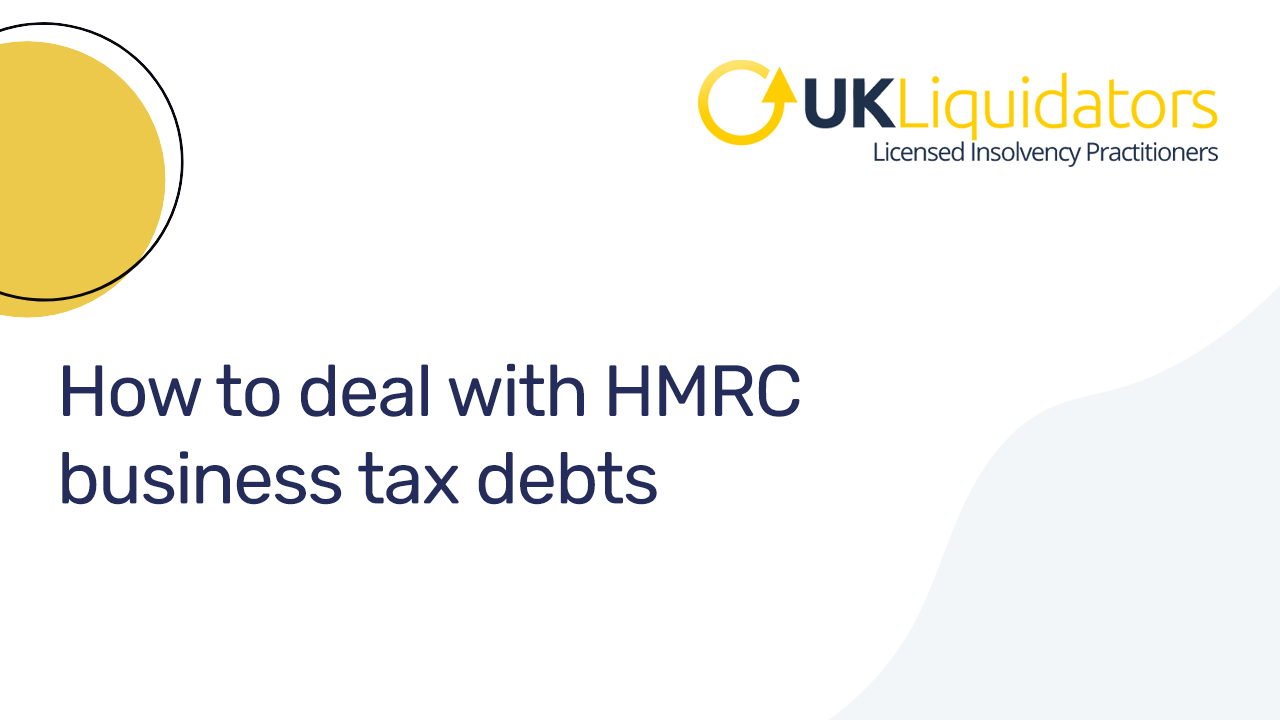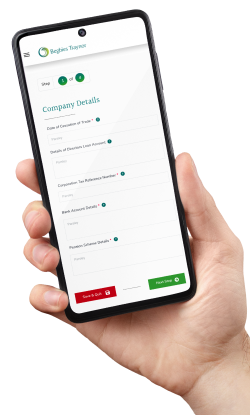If you want to close your limited company but owe money to HMRC, you need to proceed very carefully. If you don’t follow the strict regulations surrounding company closure in the UK, particularly when the business is insolvent, it could lead to personal liability for yourself and other directors.
HMRC have strong powers when it comes to debt enforcement and generally take action quickly against businesses which fail to pay the tax they owe and refuse to engage in communication to resolve the situation. While it is possible to close a company with outstanding HMRC tax liabilities, you do need to seek professional guidance from a licensed insolvency practitioner to sort the situation out.
Our licensed insolvency practitioners at UK Liquidators have extensive experience of helping businesses close down, including those with HMRC debts, and can provide the confidential, reliable guidance you need.

When your business owes money that it can’t repay, whether this is to HMRC or other trade creditors, it has become what is known as cash flow insolvent. Once this point has been reached, you are legally obliged to prioritise the interests of your creditors ahead of those of your fellow directors and shareholders.
You should make it a priority to seek professional advice in order to ensure you are prioritising creditor interests and adhering to your legal responsibilities as the director of an insolvent company. It may be the case that you need to cease trading immediately in order to comply with these duties; an insolvency practitioner will be able to advise you whether this is the case.
Liquidation Portal
For Company Directors

A formal insolvency process called Creditors’ Voluntary Liquidation (CVL) is a director-initiated liquidation process which is often used to close down an indebted company. If you owe debt to HMRC, your tax arrears will be dealt with as part of the CVL.
When you enter Creditors’ Voluntary Liquidation any debts which remain unpaid after all company assets have been used to cover the outstanding amount, are written off. This means any HMRC tax debts which cannot be fully repaid by using the value of company assets will be cleared when the liquidation process reaches its conclusion.
Concerned about the National Insurance increase?
For the 2024-25 tax year, the rate of employer National Insurance increases from 13.8% to 15% adding yet more pressure onto already squeezed cash flows. If you are worried about the impact this could have on your company’s finances, talk to the experts at UK Liquidators. As licensed insolvency practitioners we can explain your options and help you plot a way forward. Call today on 0800 063 9262.
HMRC are commonly amongst one of the largest creditors when a business experiences financial distress, and the tax body are known to take action quickly to recover their money. For this reason, it’s important not to delay, as they could rapidly force you into compulsory liquidation.
Compulsory liquidation is not the same as voluntarily entering into liquidation proceedings via a director-initiated CVL.
Compulsory liquidation is a court-ordered process which sees a company forcibly liquidated when its directors fail to take action and address the situation once it becomes knowingly insolvent. Unlike voluntary liquidation, which demonstrates the directors desire to adhere to their legal duties as the director of an insolvent company, compulsory liquidation levied upon a company which has failed to deal with their problems.
Directors should be aware that as part of all insolvent liquidation procedures - whether voluntary or compulsory - the appointed insolvency practitioner will conduct an investigation into the conduct of the directors during the time leading up to the company becoming insolvent. Any action which could have worsened the position of creditors when the company was knowingly insolvent, could be investigated further.
The voluntary strike off route via a DS01 form isn’t appropriate for companies with either HMRC or other creditor debt.
If you try to strike off your company at Companies House in this way, you should expect HMRC to make a formal objection as an outstanding creditor of the business. An objection like this will see your strike off application suspended and the company will continue to remain active on the Companies House register.
Start your online liquidation today
If you have decided liquidation is the right option for your limited company, you can take the first step and begin the process online using our online portal. Starting the process is quick, simple, and can be done at a time that suits you. Your information will be submitted to your local UK Liquidators insolvency practitioner who will be with you every step of the way. Click here to start your company’s liquidation online.
Here are just a few of the benefits of entering Creditors’ Voluntary Liquidation when your company owes tax arrears which it is unable to pay:
For more guidance on closing a company with HMRC debts, insolvency, or liquidation in general, please contact our expert team of insolvency practitioners. UK Liquidators offers free same-day consultations, and works from an extensive network of offices around the UK.
By completing the test, you will receive:
If you are considering liquidation for your company, taking expert advice at an early stage is crucial. At UK Liquidators, our team of licensed insolvency practitioners are committed to providing limited company directors with the help and advice they need to make an informed decision.




Looking for immediate support?
Complete the below to get in touch